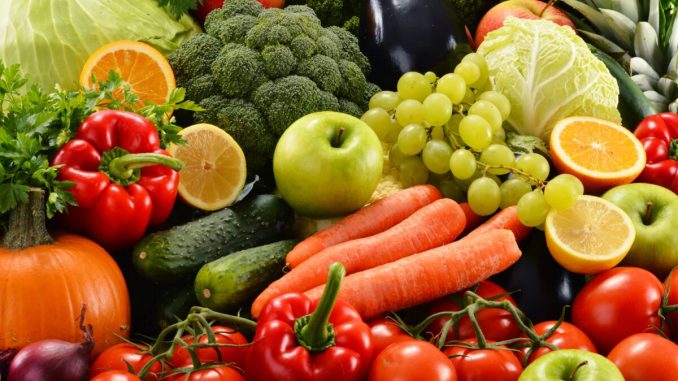

In today’s world, stress is prevalent. Researchers are currently looking for ways to reduce stress through lifestyle interventions. A new study from Edith Cowan University (ECU) has found that eating a diet rich in fruits and vegetables is associated with less stress.
The Australian Diabetes and Lifestyle (AusDiab) Study aimed to find a link between fruit and vegetable intake and stress levels. To achieve this, they examined 8,600 Australian participants between the ages of 25 and 91.
The study concluded that people who ate at least 470 grams of fruit and vegetables daily had 10 percent lower stress levels compared to those who consumed less than 230 grams of produce. This amount is slightly more than the recommended consumption from the World Health Organization (WHO), which recommends consuming at least 400 grams per day.
Mental well-being is a subject that’s quickly becoming a topic of conversation around the world. It has been found that approximately 1 in 10 people globally live with a mental disorder. With lockdowns and pandemic worries taking effect worldwide over the past year, this number is expected to increase.
While some stress in life is normal, long-term exposure can significantly impact mental health. It can lead to a range of health problems, including heart disease, diabetes, depression, and anxiety. Researchers hope that by finding new links between foods and stress, they can possibly prevent or reduce mental health problems.
The benefits of a healthy diet have been well documented, but very few American’s consume the recommended daily fruit and vegetable intake. This study helps to show the importance of consuming the right foods to keep the body and mind healthy.
Previous studies have shown the link between fruit and vegetables and stress in younger adults. However, this is the first study to find a similar relationship across all ages of adulthood.
How Food Influences Stress
The mechanisms of how fruits and vegetables influence stress remain unclear, so future studies are needed. That said, some mechanisms seem readily apparent, notes the lead researcher of the study.
“Vegetables and fruits contain important nutrients such as vitamins, minerals, flavonoids, and carotenoids that can reduce inflammation and oxidative stress, and therefore improve mental well-being,” said lead researcher Simone Radavelli-Bagatini. “Inflammation and oxidative stress in the body are recognized factors that can lead to increased stress, anxiety and lower mood.”
Researchers can now confirm that eating more fruits and vegetables appears linked to mental well-being. In times such as these, with added stress, it’s more important than ever to eat right and get plenty of exercise. Lifestyle choices can go a long way to living a healthy, happy life.
Sarah Cownley earned a diploma in nutritional therapy from Health Sciences Academy in London, and she enjoys helping others by teaching healthy lifestyle changes through her personal consultations and with her regular contributions to the Doctors Health Press. This article was originally published on Bel Marra Health.





Be the first to comment